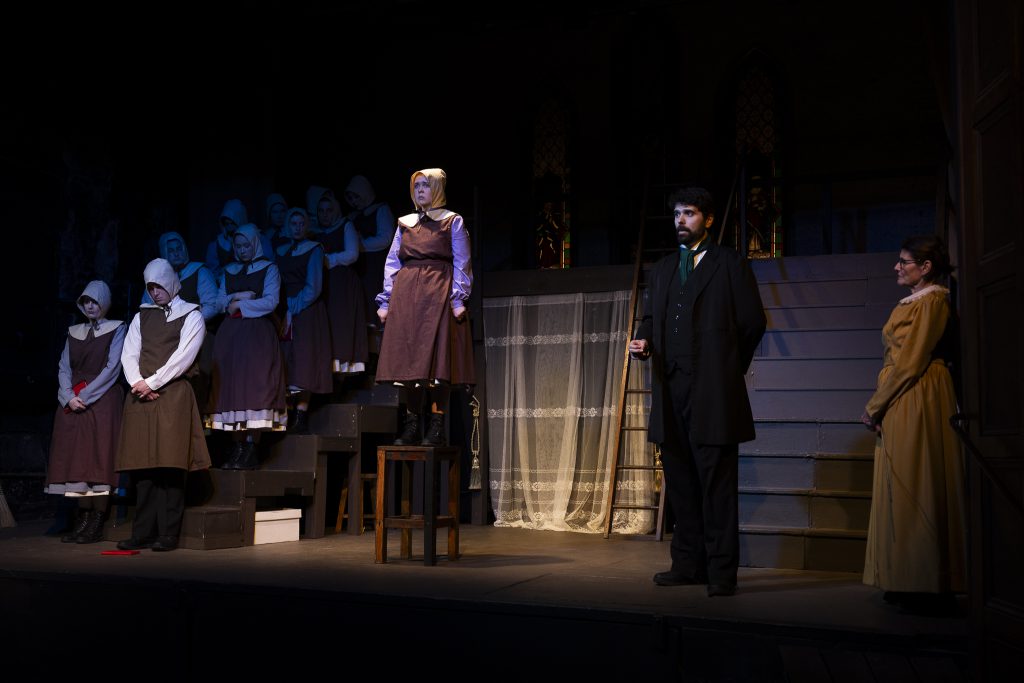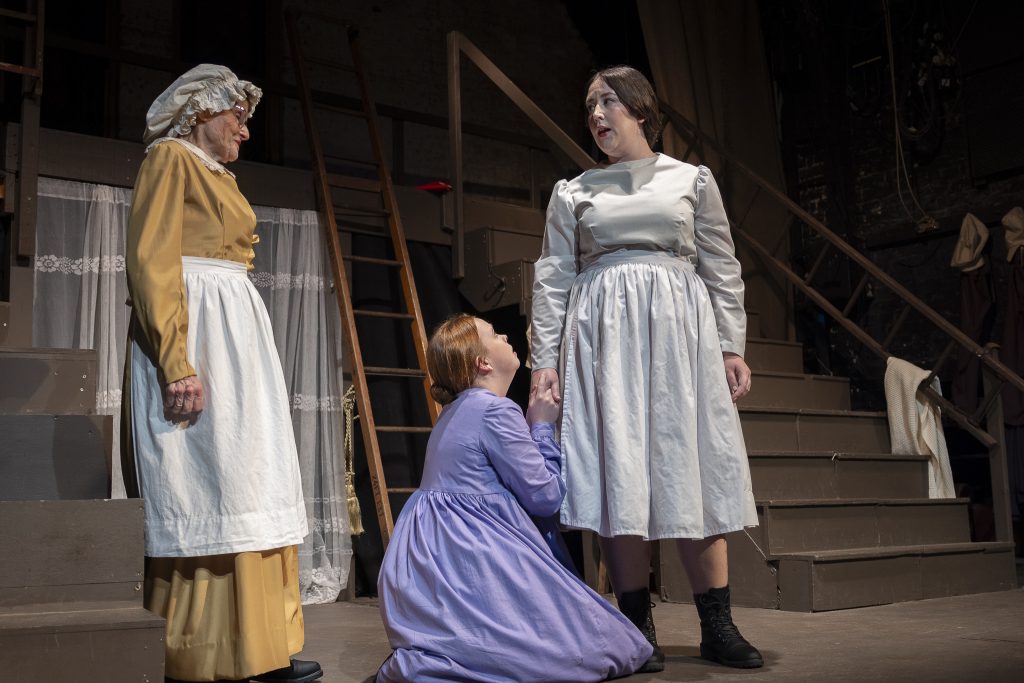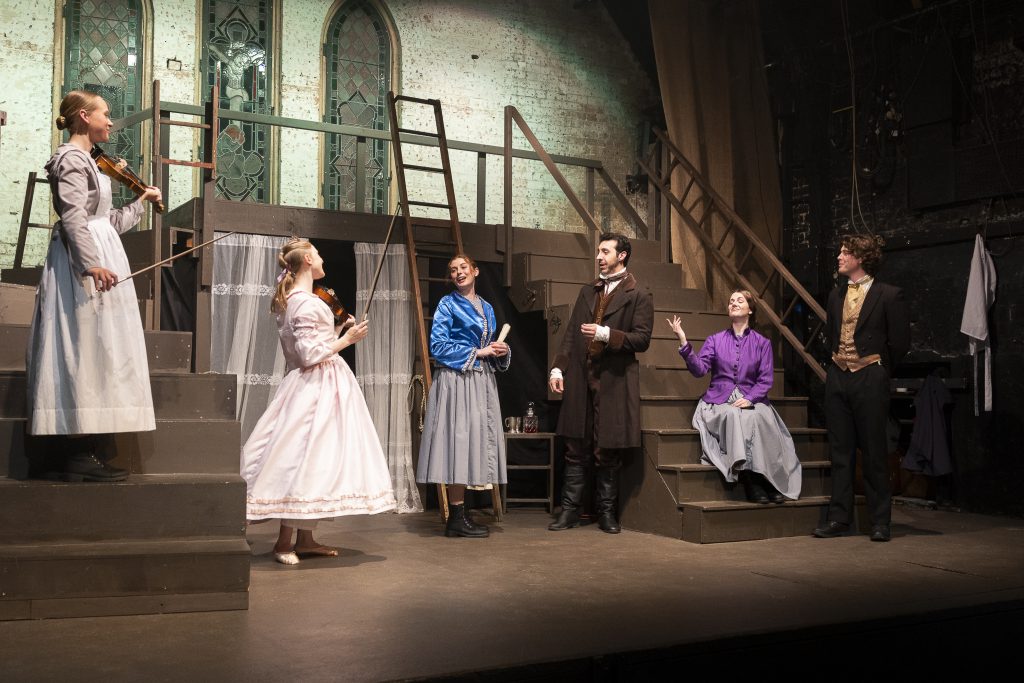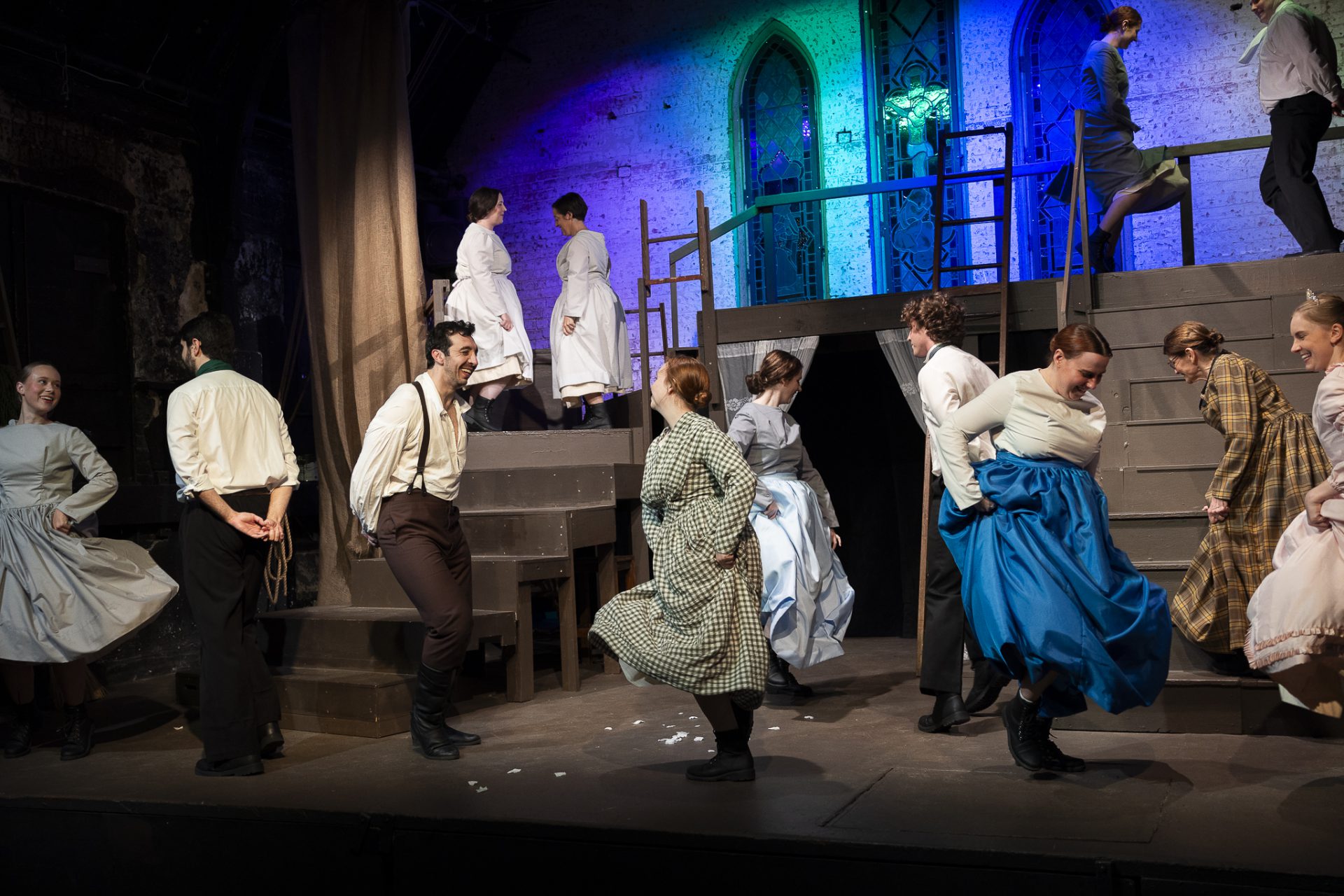Characteristic of a Gothic novel, there was an atmosphere at the Genesian on the final opening night at their Kent St home.
Charlotte Brontë’s Jane Eyre, adapted by director Ali Bendall, was fitting for the theatrical church’s final swansong as it embarks on its next chapter; characteristically Genesian in style but keen to leave its unique mark near the dawn of a new chapter for the theatre company in Rozelle. This play has much to recommend it.
The opening begins with Jane Eyre’s (Kyra Belford-Thomas) childhood shifting from one miserable circumstance to another, from a dreadful aunt to what can aptly be described as an institutionalised orphanage in all but name. Yet in the darkness which pervades these places, there is a glimmer of goodness be found, in her nursemaid Bessie (Karys Kennedy) and friend Helen (Laura Edwards). While Jane is separated from both by sometimes tragic circumstance, she learns enduring lessons of compassion, self-reliance, and generosity that guide her through the tumult to come.

Into adulthood, Jane gains employment at Thornfield Hall from the aloof owner Edward Rochester (Vincent Andriano) as a governess for his French ‘ward’ Adele (Julia Grace). Joined by the delightful housekeeper Mrs Fairfax (Jenny Jacobs), comparatively Thornfield seems like heaven to Jane. However, not everything is as it seems; after falling in love with the brooding Edward Rochester, Jane will discover that Thornfield and its owner share an immense secret; one that threatens everything.
Director/Writer Ali Bendell wanted to create a faithful adaption with a ‘fresh, contemporary twist’ that resonated with a modern audience. The play was largely successful in doing so, showing admirable restraint in holding space for Brontë to speak through this adaptation. The choice for Jane to break the fourth wall was clever and faithful to the book’s first-person narrative style. There was modern music sequence which, compared to the Victorian dialogue and costumes up until that point, felt unexpected and awkward; while the music successfully matched the scene’s ‘vibes’, it did not marry up well with its surrounding context. That being said, the writing was superb; mustering tasteful humour from a Gothic novel is no small feat.

Of all the sets I’ve seen at the Genesian, this was my favourite. The set, designed by Tom Fahy, was beautifully pared back, letting the Genesian’s historic Victorian church do the work with its gritty brickwork and mesmerising stained glass. The set also established physical levels that, in very Gothic fashion, matched the drama unfolding in every scene. Similarly, the sound design by Cian Byrne and Ali Bendall worked well in tandem to deliver that all-important Gothic atmosphere. Another element worth mentioning is the costumes, always a highlight at the Genesian, co-designed by Susan Carveth and Ali Bendall, which really evoked that modest and constrained Victoriana.
This was a really delightful cast; you could see that behind all that Gothic seriousness this was a fun play for them. Belford-Thomas brought a wonderful unassuming Jane-ness to the role; it isn’t an inherently easy role where Jane is understated and yet must also muster main character energy. Andriano meanwhile brought that brooding intensity to his character, which similarly presents difficulties, namely needing to slowly shift from cynic to romantic while still believably remaining the same character. Other honourable mentions go to Jenny Jacobs who brought an extraordinary presence on stage and Julia Grace who really captured the delightful utterly frivolity of her character which contrasted so well with the heavy Gothic atmosphere.

One cannot escape the conclusion that the Genesian is much like Jane Eyre herself; unassuming, generous, modest, and kind. Dear reader, apologies for exposing my sappy sentimentalism; rest assured though, it is thoroughly deserved. Much praise is owed to this production including to its director, creative team, and cast; it is well worth a watch.
